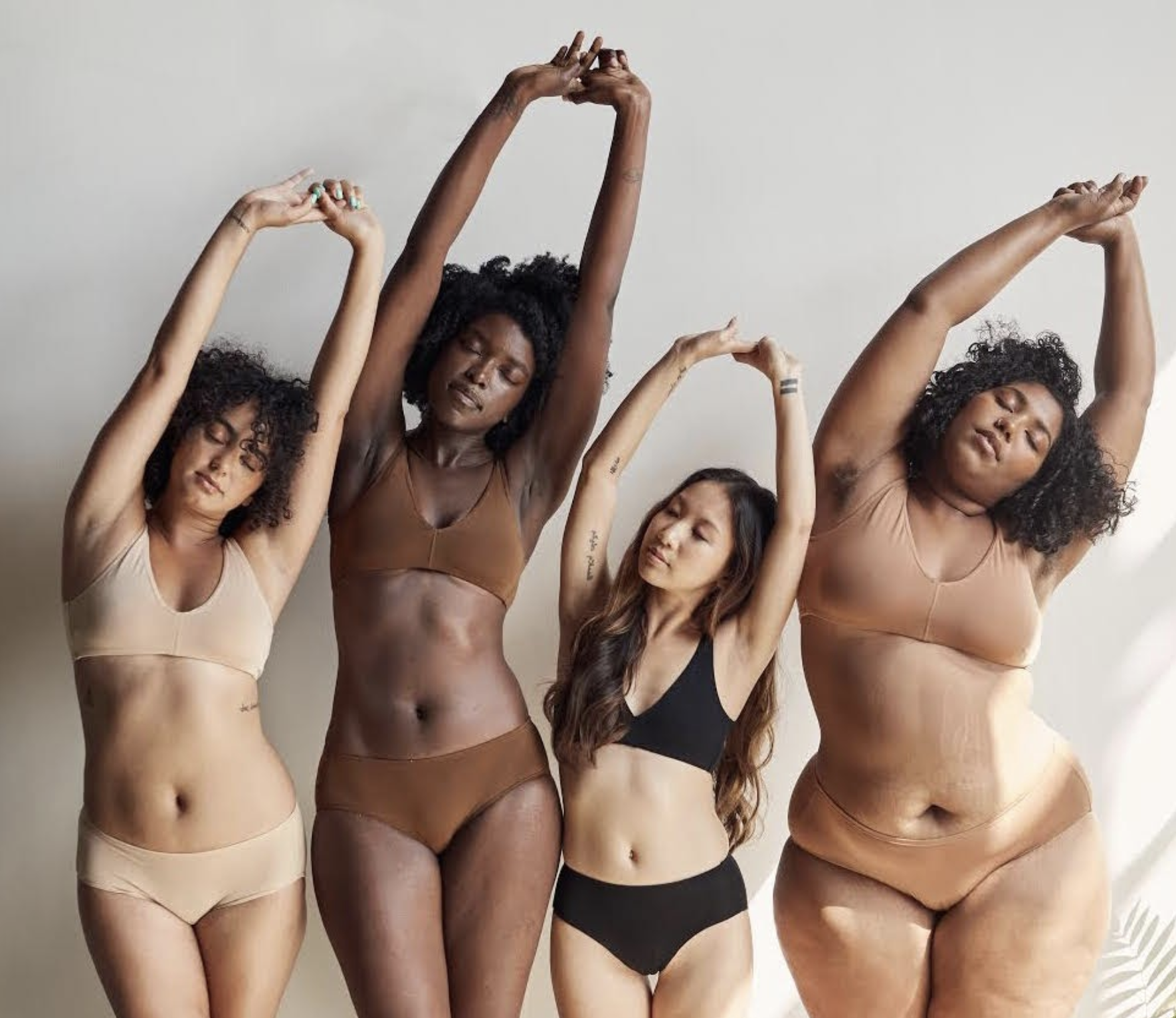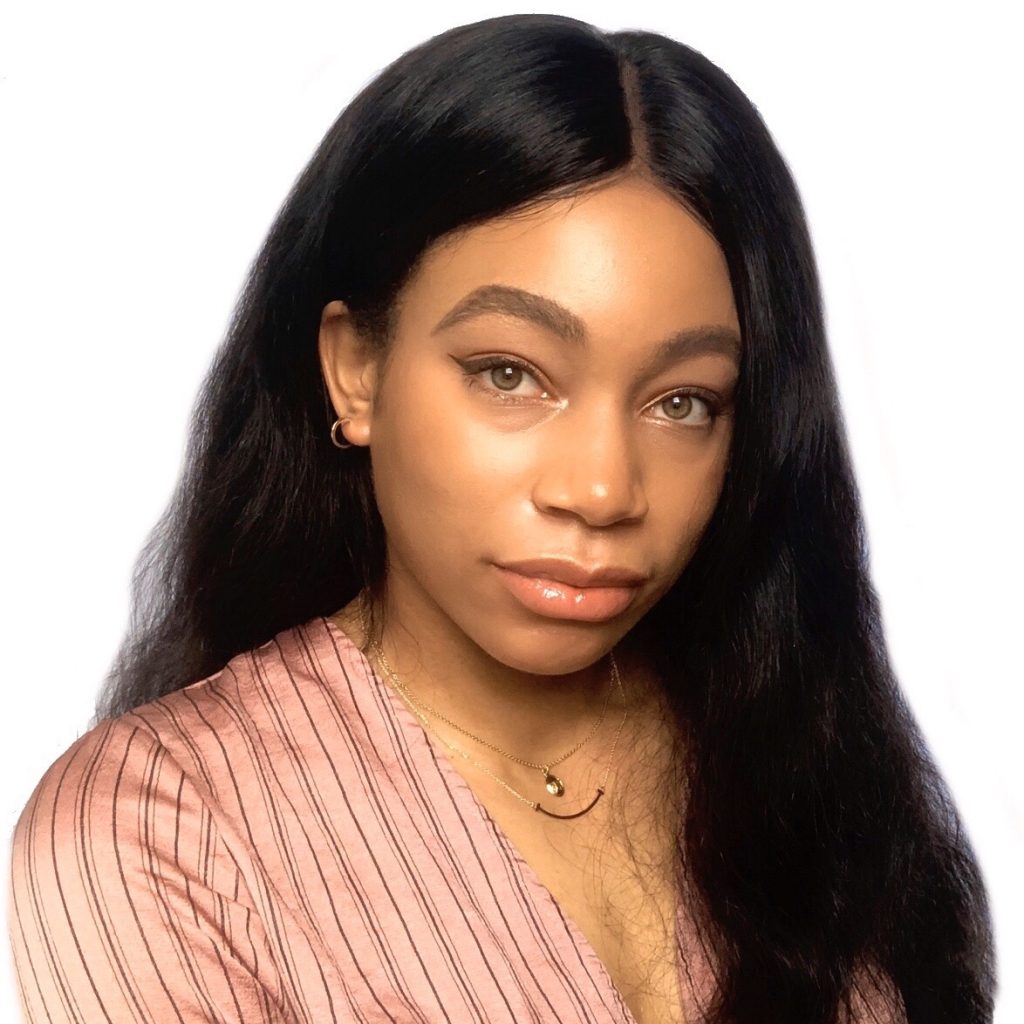
For Proclaim Lingerie, All-Inclusive Fashion Also Includes The Planet
Annoyance with the color “nude” planted the seed for the Los Angeles based sustainable lingerie brand, Proclaim. Founder, Shobha Philips, grew up in the Midwest and never saw her brown skin tone reflected in the “nude” sections of lingerie stores. So, when Philips moved to San Francisco in 2017, she discovered that the social construction equally bothered other women of color, and she created Proclaim.
Philips studied business marketing in college and got exposed to retail management while working for Target Corporate. She considers herself the creative director of Proclaim and works with a team of local designers, fabric mills, and seamstresses to create their products.
This lingerie brand makes it a point to accept those who have been traditionally outcast within fashion.
Proclaim encourages diversity within their product and beyond as their campaigns also celebrate an array of skin tones, body types, and aesthetics. Their bodysuits, bralettes, and undergarments come in a selection of new “nudes” and range from size Small to 3X.
When I talked to Philips, I asked her how she wants women to feel every time they put on a piece of Proclaim clothing.
“I think comfort is the most important,” said Philips. “I want women to feel comfortable in our clothing, I want women of all skin tones, shapes, and sizes to feel represented. And I want it to feel real, and representative of who we are, and not some ideal of who we are supposed to be.”
With inclusivity being the goal, Philips took it upon herself to also look out for the planet.
“Us millennials seem to have it ingrained in our psyches to think of ways we can keep our planet liveable,” Philips said. “I knew just from being aware of the environment, that the fashion industry is known to be a really big polluter. So, when I started Proclaim, literally one of the first things I thought was, ‘What would be the environmental impact of this?’ When you have that mindset as the base of every decision you make, it guides you.”
The polyester fabric that hugs Proclaim customers in all the right places, Repreve, was once a pile of plastic water bottles in a recycling bin.
These BPA-free bottles were sorted and washed before being minced into flakes and melted into chips to be transformed into polyester fibers. Their other ultra-soft fabric, Tencel, is composed of sustainably managed wood pulp that converts into threads through a solvent water spinning process.
“We source these fabrics from different fabric mills around Los Angeles to keep our supply chains local,” said Philips.
In 2018, Philips moved the Proclaim headquarters to Los Angeles, where the garments are now ethically manufactured by local seamstresses. Rather than receiving compensation for individual pieces, workers are given an hourly wage and are protected by the Los Angeles Labor laws that Proclaim vows to follow.
She ensures that the workers’ environment is just as sustainable as the garments.
Paying seamstresses for individual pieces is a work incentive that amplifies production, but sacrifices craftsmanship. By providing an ethical hourly wage, Proclaim discourages that pressure and prioritizes quality over quantity.
Every step in Proclaim’s production process is well thought out, even down to the shipping and handling, or as they call it, “Packaging with Love.” Each shipment uses 100 % recycled wrapping and their label fasteners are composed of natural hemp fibers as opposed to standard plastic. Brands like Proclaim that consider the Earth and make sacrifices to promote ethical practices are forerunners in combating the fashion industry’s high carbon footprint.
Toward the end of our conversation, I asked Philips about how Coronavirus was affecting her business. Her answer truly warmed my heart. At this time, Proclaim is not making any new products and are instead working with its manufacturers to make masks.
“I think it’s really important to keep the LA fashion community going,” Philips said. “We are paying our suppliers for fabric and trying our best to help our manufacturers make money while still being safe. We are donating half of the masks to the Downtown’s Women’s Shelter in Los Angeles as well.”
Supporting fashion brands like Proclaim, who source their products close to home, also lessens environmental detriment.
In 2015, Levi’s discovered that 40% of their carbon footprint stemmed from distribution and global production. Small batch brands cut out a huge chunk of that footprint just from sourcing locally.
Fashion does not need to disappear, but it needs to produce less of a murky shadow on the environment. Pay attention to the origin story of the next little black dress you buy or the perfect pair of booties you found at half price. Looking hot does not have to contribute to global warming, support sustainable fashion and support the world!
Cassandra specializes in locating both established and emerging brands, designers and creatives who are at the forefront of sustainable technologies and practices. By creating on-going partnerships with these makers, she has direct access.
ALEXANDRA POLK
Alexandra Polk is a Brooklyn based creative who specializes in black culture, personal essays, poetry, and graphic design. She recently graduated from the University of Washington and received a bachelor’s degree in her two passions: Creative Writing and Journalism. Alexandra is always looking for new ways to captivate audiences with her unique perspective, and she takes pride in contributing to the future of writing and visual arts.
